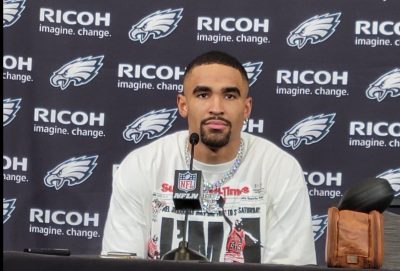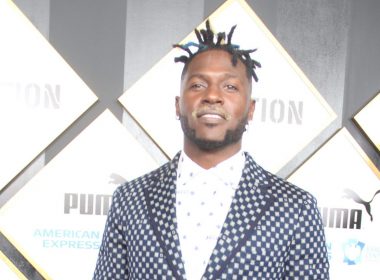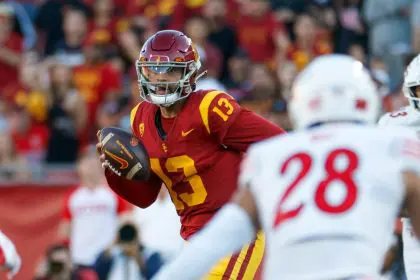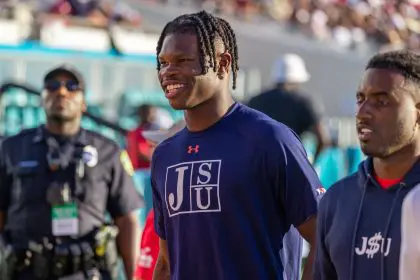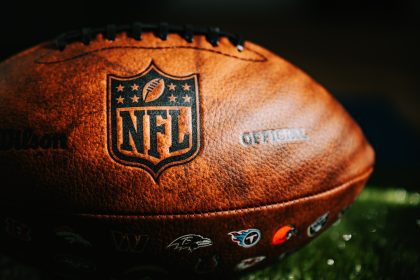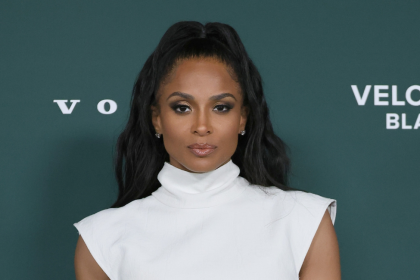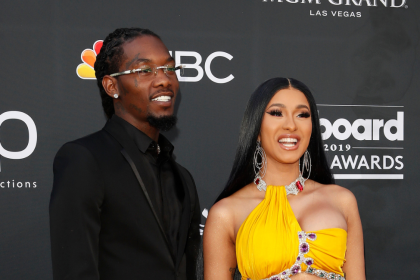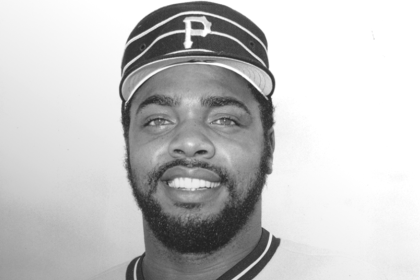
History was made in the NFL on Sept. 20. For the first time in the league’s history, eight Black quarterbacks faced off against each other. It’s a remarkable feat considering the lack of Black representation at the quarterback position in the past.
The matchups included: Lamar Jackson (Baltimore Ravens) vs. Deshaun Watson (Houston Texans); Kyle Murray (Arizona Cardinals) vs. Dwayne Haskins Jr. (Washington Redskins); Patrick Mahomes (Kansas City Chiefs) vs. Tyrod Taylor (Los Angeles Chargers); and Cam Newton (New England Patriots) vs. Russell Wilson (Seattle Seahawks), according to ESPN.
Mahomes’ battle with Taylor ended with a 23-20 overtime win for the Chiefs, Jackson got the best of Watson’s team with a score of 33-16, and Murray outlasted Haskins Jr. 30-15.
But the most anticipated showdown of Sunday was the matchup between Newton and Wilson. The two Super Bowl-caliber quarterbacks lived up to the hype with a Sunday night match featured on prime-time TV.
Newton solidified his comeback by gaining nearly 400 yards and scoring three touchdowns. Wilson was equally impressive in the game by throwing for five touchdowns and rushing for 39 yards. His Seahawks team would defeat the Patriots after stopping Newton at the one-yard line on the final play of the game.
The presence of Black quarterbacks in the NFL has increased over the past two decades, but there was a time when they were not often given the opportunity to play the game’s most important position.
In 1968, Marlin Briscoe became the first Black quarterback to start in the NFL, but it wouldn’t last long as he was converted into a wide receiver the following year.
Like Briscoe, Black quarterbacks who achieved in college were often forced to change positions. In the 1970s, Tony Dungy was an MVP quarterback for the University of Minnesota, but he was moved to defensive back when signed as a rookie for the Pittsburgh Steelers in 1977.
During the 1980s, Doug Williams, Warren Moon, Rodney Pete, and Randall Cunningham all had successful careers but were often the only four Black quarterbacks to consistently start for an NFL team during the decade. Williams would make history by becoming the first Black quarterback to win the Super Bowl in 1987 after he led the Redskins to a 42-10 victory over the Denver Broncos.
By the 1990s and 2000s, Black quarterbacks such as Daunte Culpepper, Steve McNair, Donavan McNabb, Kordell Stewart, Michael Vick would get opportunities to start and lead an NFL franchise.
Colin Kaepernick carried the San Francisco 49ers to the Super Bowl in 2013, three years before his silent protest would lead to him being blackballed by the NFL.
Wilson would become just the second Black quarterback to win a Super Bowl after leading the Seahawks to a victory in 2014. And Mahomes became the third Black quarterback to win the big game after he led the Chiefs to a victory in 2020.
Although Black quarterbacks are finally getting opportunities and recognition, the NFL continues to struggle in terms of Black leadership. At press time, there are only three Black head coaches (Mike Tomlin, Brian Flores, Anthony Lynn) in the NFL and two Black general managers (Andrew Berry and Chris Grier).

